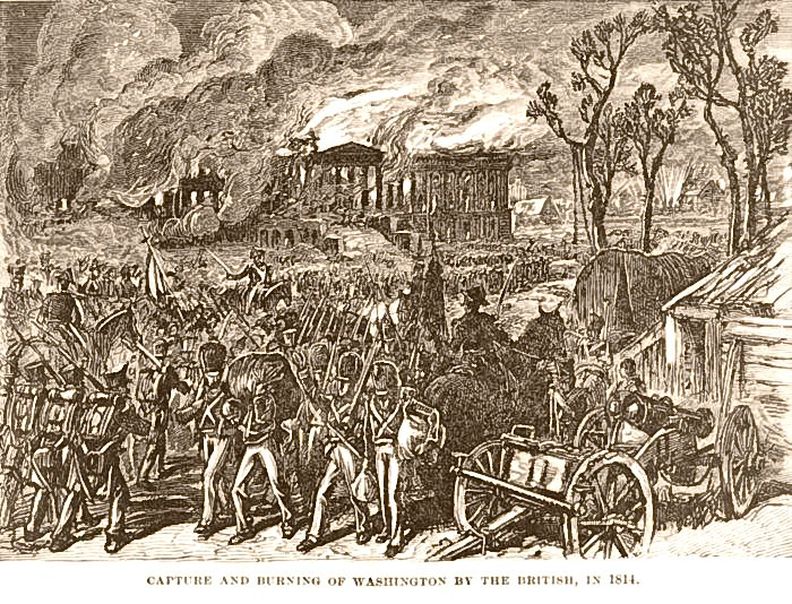 A little perspective, please. James Madison's historical reputation hinges on his absolutely phenomenal work at the Constitutional Convention of 1787, and as an author of the Federalist Papers, but his subsequent political career culminated in a presidency which saw the threatened secession of New England (the Essex Junto and Hartford Convention--little taught in modern public schools), the capitulation of an entire American brigade under General Hull on U.S. soil, and the occupation, looting and destruction of the U.S. Capitol and the White House.
A little perspective, please. James Madison's historical reputation hinges on his absolutely phenomenal work at the Constitutional Convention of 1787, and as an author of the Federalist Papers, but his subsequent political career culminated in a presidency which saw the threatened secession of New England (the Essex Junto and Hartford Convention--little taught in modern public schools), the capitulation of an entire American brigade under General Hull on U.S. soil, and the occupation, looting and destruction of the U.S. Capitol and the White House.
And yet, in spite of this, the Democrats succeeded in holding the White House, electing Madison's Secretary of State, James Monroe, in the elections of 1816. In fact, it was the opposition party, the Federalists who had opposed the war, which was destroyed in the subsequent election.
How did this occur?
First of all, the Democratic Party clung tenaciously to its support for the war in principle, while actively taking steps to conclude it on the best possible terms. Jackson's fortuitous victory at New Orleans was a significant part of this equation, but the Democrats grasped the nettle and concluded a completely ambiguous peace (the best for which could be hoped, given the astonishing bungling of the war up to that point) which merely restored the status quo ante.
What saved them was their willingness to claim victory on that basis, and the clear unwillingness of the Federalists to endorse the war in principle. Once the ongoing costs of the war had ended, a positive note was seized and pounded relentlessly as evidence of the ultimately correct logic of going to war in the first place.
In Iraq, then, the question will be, was the war a mistake or not, and was its termination (almost everyone agrees that active U.S. campaigning will be ended sometime next year) on the best possible terms? History suggests that the ability of the Republican Party to effectively answer those two questions will determine the likely Presidential prospects of the Republican and Democratic parties.
Wednesday, July 25, 2007
"Worst President Ever"
Posted by
Philo-Junius
at
6:00 PM
![]()
Subscribe to:
Post Comments (Atom)

No comments:
Post a Comment